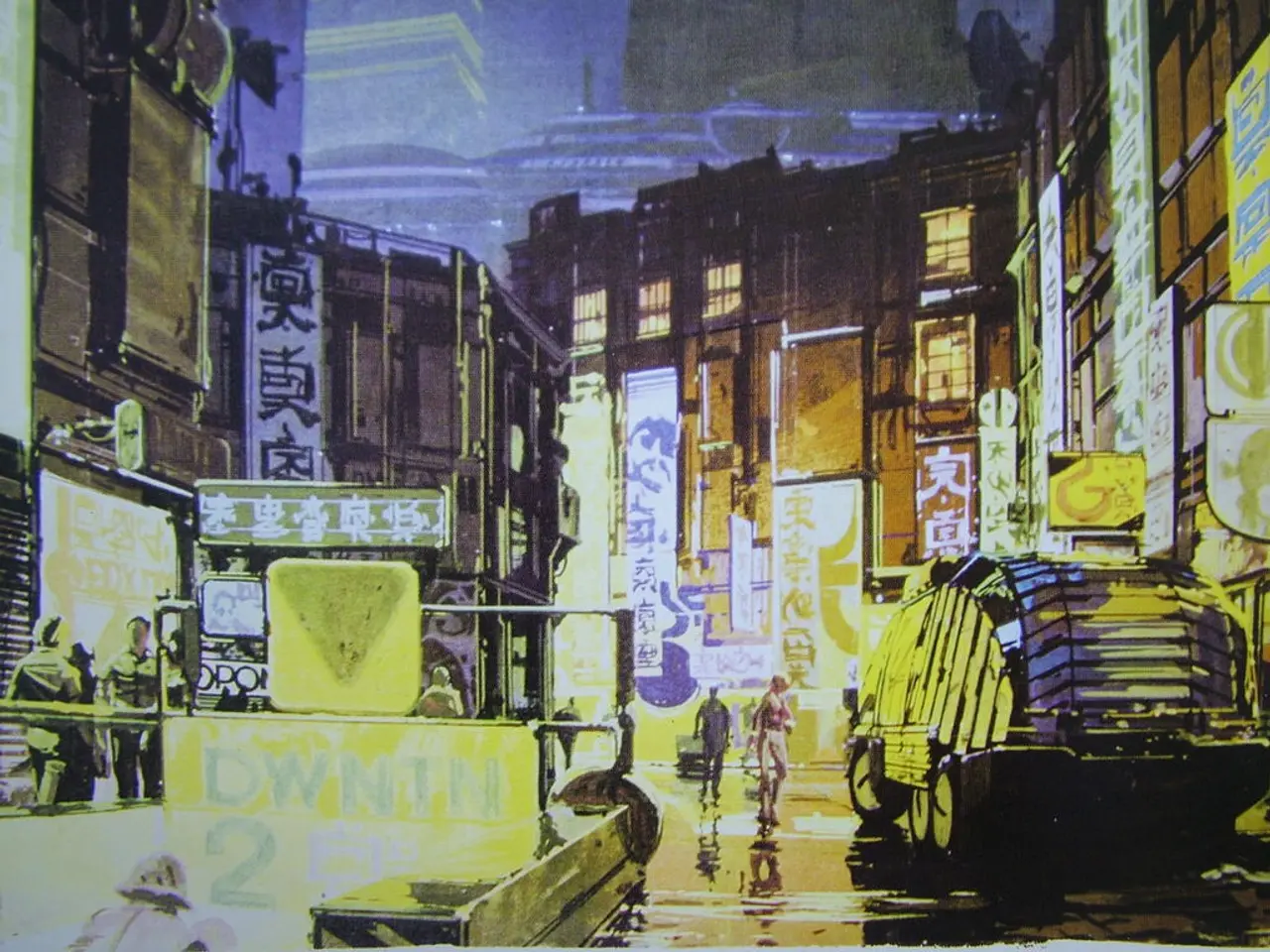Working from Home on Olive Hill: Turning Parking Spots into Offices
Transforming Parking Spaces into Community Hubs: Wuppertal's Space Makers Initiative
In the heart of Wuppertal, Germany, a revolutionary approach to urban planning is taking shape. Known as the Space Makers initiative, this project is redefining the use of public spaces by transforming traditional parking spots into vibrant, human-centered urban areas.
Gunnar Ohrndorf, Head of Urban Development, Construction, and Mobility, explained that the promotional period aims to showcase different uses of public space. "Space Makers is all about demonstrating the potential of our urban spaces," he said. "By repurposing parking areas, we're creating venues for community activities, green spaces, and social interaction zones."
The concept has already proven successful, with residents like Hans Böhmer, a resident of Ölberg, expressing a predominantly positive experience with the action. Hans, who did not personally use the benches and tables, found the sight of people playing cards more pleasant than parked cars. In fact, several parking spaces have been lost due to roadworks in the last two weeks, and residents have been making the most of the mobile terraces.
Residents have been using these new spaces for communal activities such as shared dinners, card games, or a short rest. One resident even used one of the new seating options as a home office during the action. The area around the Otto-Böhne-Platz looked more attractive and livelier due to the use of benches and tables.
The Space Makers initiative aligns with broader trends and documented benefits of repurposing parking spaces into active public spaces. These benefits typically include increased community cohesion, improved public fitness and health, higher local economic activity and property values, enhanced neighborhood security, reduction in traffic congestion and pollution, and more attractive and accessible streetscapes for non-drivers.
Stella Schwietering, project manager from the city of Wuppertal, mentioned that the response to the 'Space Makers' was diverse, both critical and positive. Public discussion forums and music evenings accompanied the action, further encouraging community engagement.
In summary, the innovative usage demonstrated by Wuppertal’s Space Makers is the temporal transformation of parking spaces into dynamic, multi-functional public spaces that foster social engagement, increase urban greenery, and promote sustainable, active transportation modes, contributing to more vibrant and sustainable urban environments. The project is part of a broader movement towards designing public space more efficiently and fairly, and it serves as a shining example of mobility transitions and urban design trends seen in cities like Vienna and Luxembourg.
The Space Makers initiative in Wuppertal has created community hubs by transforming parking spots into spaces for communal activities, contributing to a livelier home-and-garden feel in urban areas. This lifestyle change aligns with broader trends, as repurposed parking spaces can lead to increased community cohesion, improved public health, and enhanced home-and-garden aesthetics.




